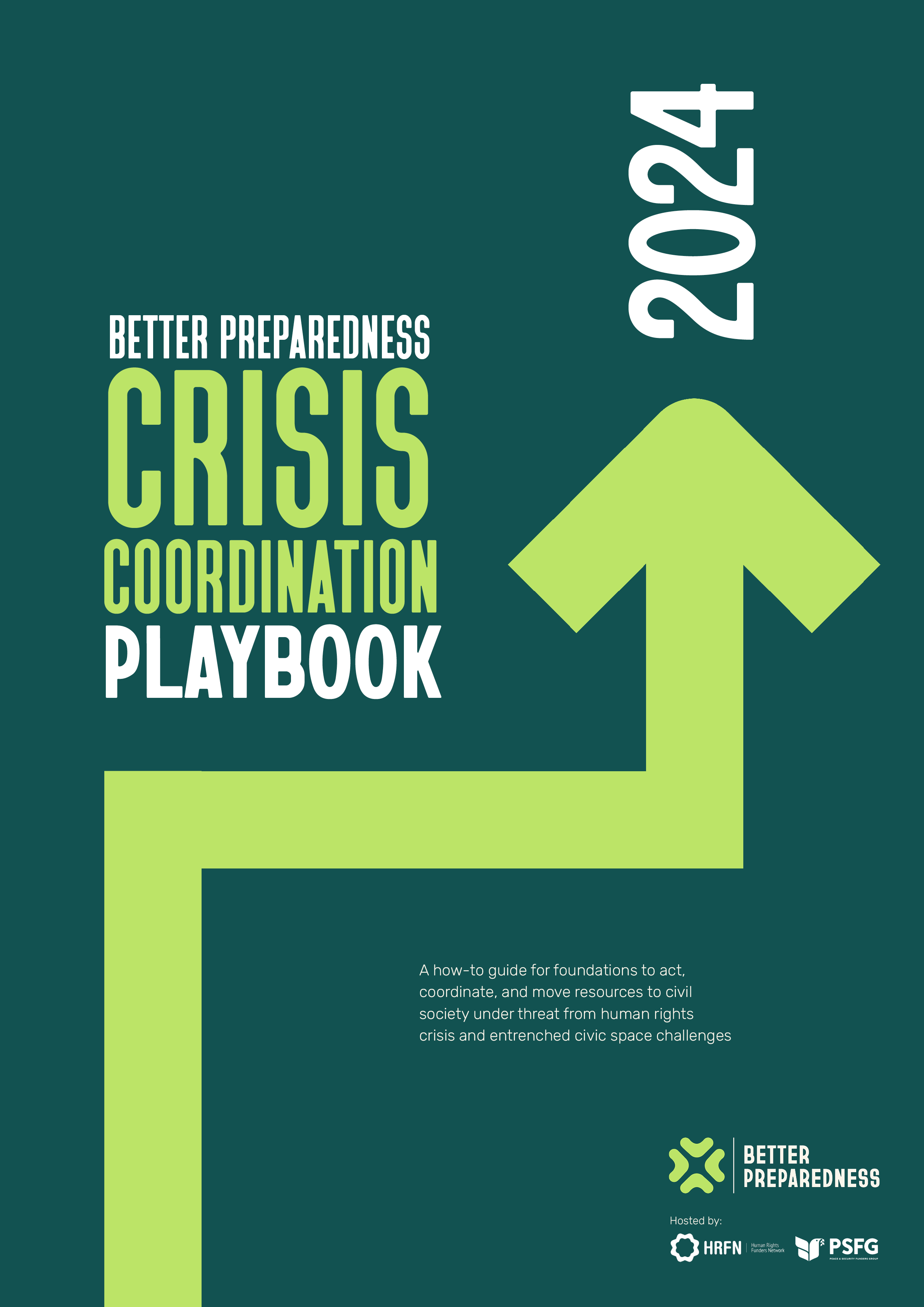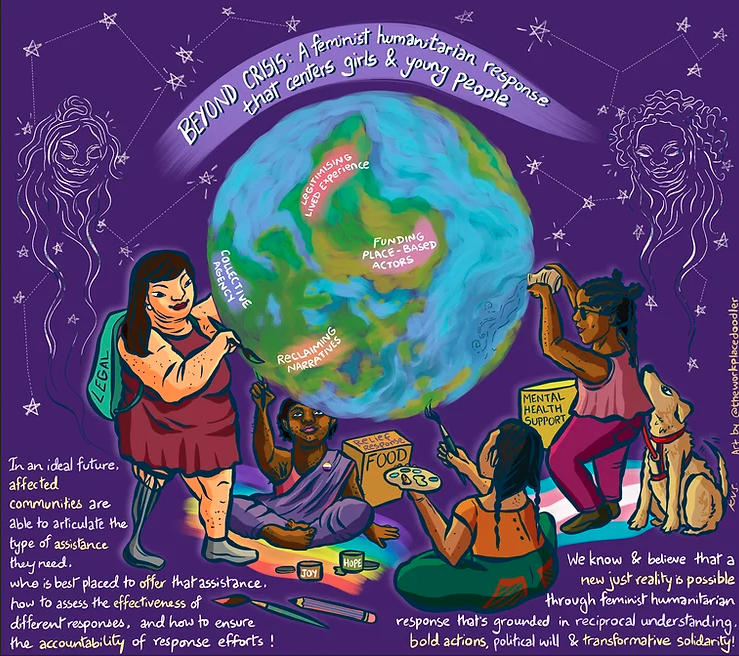Better Preparedness: Funding Resilience – Improving Coordination Between Funders Addressing Acute Human Rights Crises and Restricted Civic Space
HRFN is pleased to announce the release of our report “Better Preparedness: Funding Resilience – Improving Coordination Between Funders Addressing Acute Human Rights Crises and Restricted Civic Space”.
Report - Better Preparedness - Funding Resilience
Overview
We are living in a time of intersecting crises. Natural disaster, democratic collapse, and humanitarian emergencies sit against a backdrop of rising authoritarianism. At Human Rights Funders Network (HRFN), we believe that there is an urgent need for new approaches to funding civil society and social movements where human rights are most under threat. The time is now.
In the last two years alone, a range of large-scale crises – from Ukraine to Afghanistan, Myanmar to Burkina Faso, Nicaragua to Maui – has galvanized philanthropic actors around the world and led to unprecedented levels of financial investments in crisis. At the same time, a growing number of foundations are working to reach movements and civil society actors facing substantial restrictions on their ability to organize freely, from India to Uganda and beyond.
In 2023-2024, Better Preparedness: Funding Resilience is bringing together peace and security and human rights funders so that they can deliver more coordinated, effective, and efficient resources in contexts of extreme threat or crisis.
The Better Preparedness: Funding Resilience – Improving Coordination Between Funders Addressing Acute Human Rights Crises and Restricted Civic Space report by HRFN builds a blueprint to enable better coordination within and between funding institutions to more effectively deliver resources in contexts of extreme threat or crisis and longer-term closing civic space.
Key Findings:
External Systemic Drivers Impacting Crisis Funding Strategy and Capacity
- Layered and arcane restrictions on the operations of civil society organizations
- Challenges in addressing long-term civic space deficits
- Increased surveillance of human rights defenders
Internal Systemic Issues in Foundations
- Lack of crisis preparedness inhibits swift and strategic responses
- Limited internal buy-in and capacity among foundations
- Low risk appetite among some foundations
- Fragmentation and insufficiency of resources
- Insufficient inclusion of diverse grantees
Barriers to Coordination Between Foundations
- Lack of a field-wide holistic approach to addressing acute human rights crises and longer term civic space challenges
- Lack of knowledge of each other’s focus areas
- Lack of shared understanding of the nature of crisis
- Lack of coordination preparedness for crisis
- Lack of investment in early warning systems and foresighting
Lack of Coordination Within the Wider Funding Ecosystem
- Limited coordination among stakeholders within broader funding ecosystems



